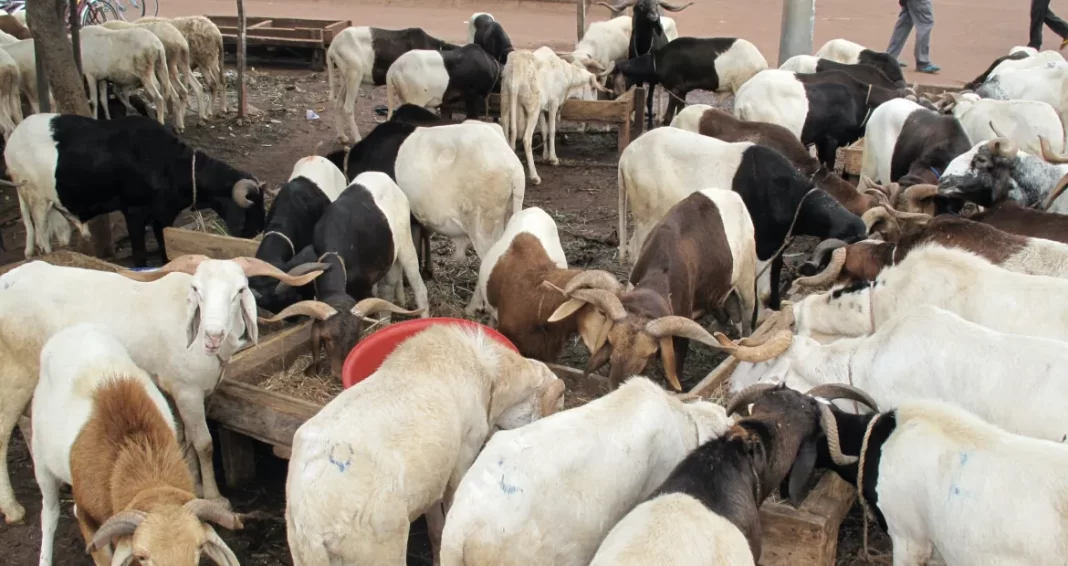The Director in charge of Livestock at the Department of Food and Agriculture in the Upper East Region, Esther Agumah is worried about the retrieval of small ruminants distributed under the government programme, Rearing for Food and Jobs.
When Madam Agumah spoke on A1 Radio’s Day Break Upper East Show, she explained that after 2,000 sheep were distributed to farmers, only 349 had been reclaimed.
“The farmers were supposed to pay back in kind. They were supposed to breed them, [the sheep] and raise them. When they deliver, within two years, they will pay back in kind. They would give the animals to the district to be redistributed to other farmers. That was the idea behind the distribution of the small ruminants.”
“The recovery is very bad. Farmers are not willing to pay. Since the inception of this programme, we have been able to recover only 349. If you want to consider it, at least every sheep gives birth about 3 times in 2 years,” she told Mark Smith on A1 Radio’s Day Break Upper East Show.
Farmers, according to Madam Agumah, have been reluctant to make payments because of the heavy political influence during the distribution of the animals.
“Famers aren’t willing to pay back. There is also political influence. People with political influence go around and tell farmers not to give back the offspring to MoFA because it was some kind of gift. That is a serious problem we are having with this intervention.”
Madam Agumah explained that it has become impossible to retrieve the animals despite the engagements with farmers through their chiefs and opinion leaders.
“We spoke to some chiefs to convince the farmers to pay back, but up till now, nothing has been done. I do not know what to say. I think that the farmers and the so-called political figures are not also doing well because they are not being fair. If we are able to recover from the initial beneficiaries, we would be able to pass on to other new beneficiaries and then we would have got more farmers in the region benefitting but if you have taken the animals and you want to sit on them [how would others benefit.]”
“[It is unclear] whether they have sold them. I am even hearing that some of them were not farmers but just decided to take their names there, [they] benefited and used them [the sheep] for light soup and a whole lot. These are rumours I am hearing,” she said.
Rearing for Food and Jobs (RFJ) is one of the modules of the government’s flagship agricultural programme, Planting for Food and Jobs (PFJ). The RFJ was a five-year programme that was to run from 2019 to 2023.
The objective of the RFJ was to develop a competitive and more efficient livestock industry that increases domestic production, reduces importation of livestock products, and contributes to employment generation, the improvement of livelihoods of livestock value chain actors, and the national economy.
This module was officially launched by H. E. President Nana Addo Dankwa Akufo Addo at Wa in the Upper West Region on June 25th, 2019. It is also aimed at addressing issues associated with livestock development in the country, including but not limited to; poor genetic quality of breeds used by farmers; poor nutrition and inadequate water resources for livestock; animal health; poor and inadequate livestock housing structures/equipment; inadequate agricultural extension service and developing and promoting the livestock value chain.
This campaign was designed to address the identified bottle-necks along five (5) key value chains which are: sheep, goats, pigs, poultry, and dairy cattle.
In 2019, 2,000 sheep were presented to farmers in the Upper East Region.
Source: A1radioonline.com|101.1MHz|Mark Kwasi Ahumah Smith|Ghana


